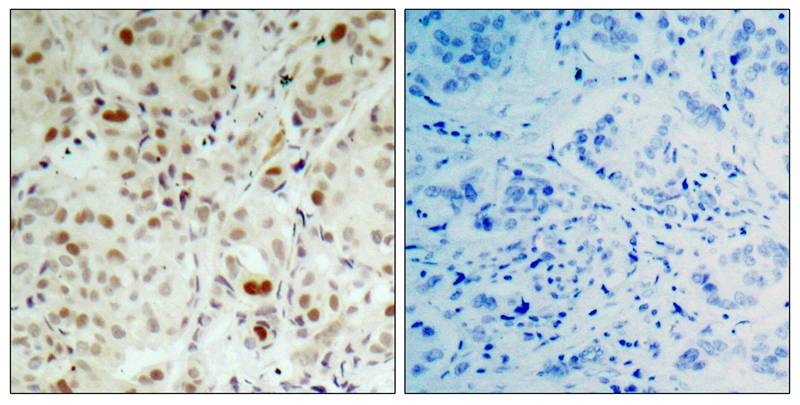Key regulator of entry into cell division that acts as a tumor suppressor. Acts as a transcription repressor of E2F1 target genes. The underphosphorylated, active form of RB1 interacts with E2F1 and represses its transcription activity, leading to cell cycle arrest. Directly involved in heterochromatin formation by maintaining overall chromatin structure and, in particular, that of constitutive heterochromatin by stabilizing histone methylation. Recruits and targets histone methyltransferases SUV39H1, SUV420H1 and SUV420H2, leading to epigenetic transcriptional repression. Controls histone H4 'Lys-20' trimethylation. Inhibits the intrinsic kinase activity of TAF1. In case of viral infections, interactions with SV40 large T antigen, HPV E7 protein or adenovirus E1A protein induce the disassembly of RB1-E2F1 complex thereby disrupting RB1's activity.
Roesch A, et al. (2005) Mod Pathol. 18(4): 565-572.
Chadee DN, et al. (2004) Nat Cell Biol. 6(8): 770-776.
Knudsen ES, et al. (1997) Mol Cell Biol. 17(10): 5771-5783.
Knudsen ES, et al. (1996) J Biol Chem. 271(14): 8313-8320.


